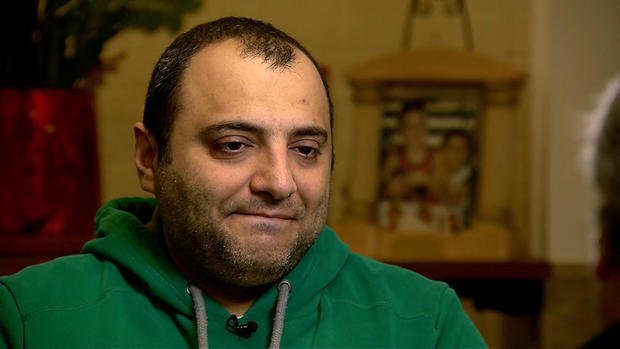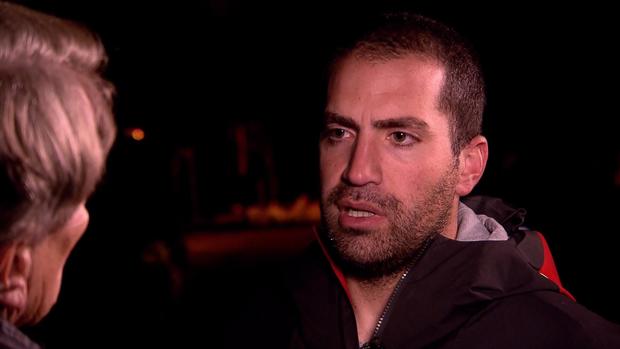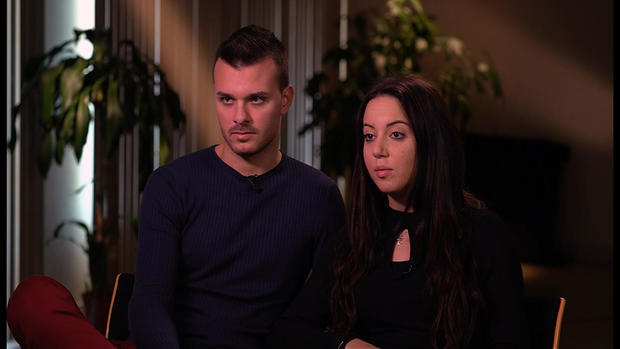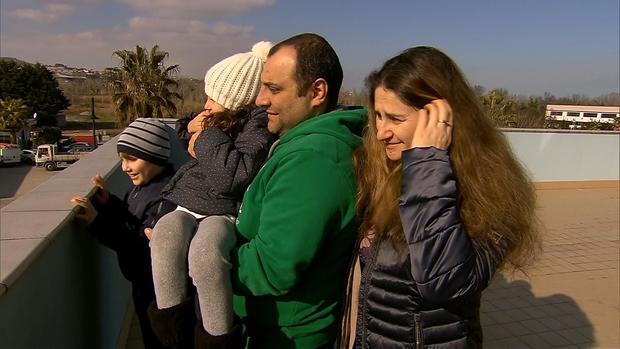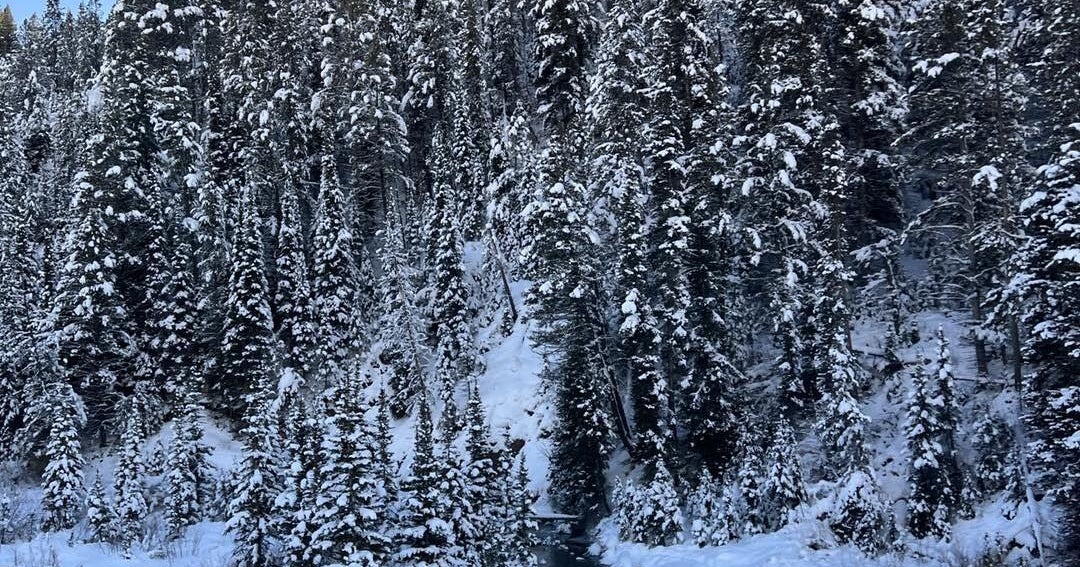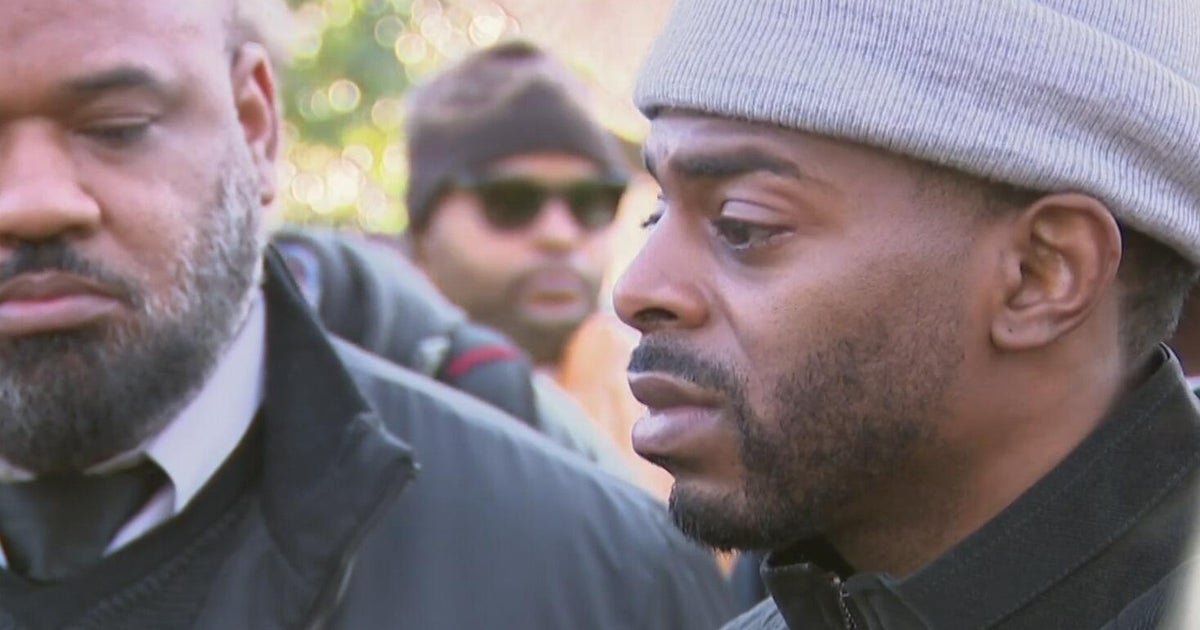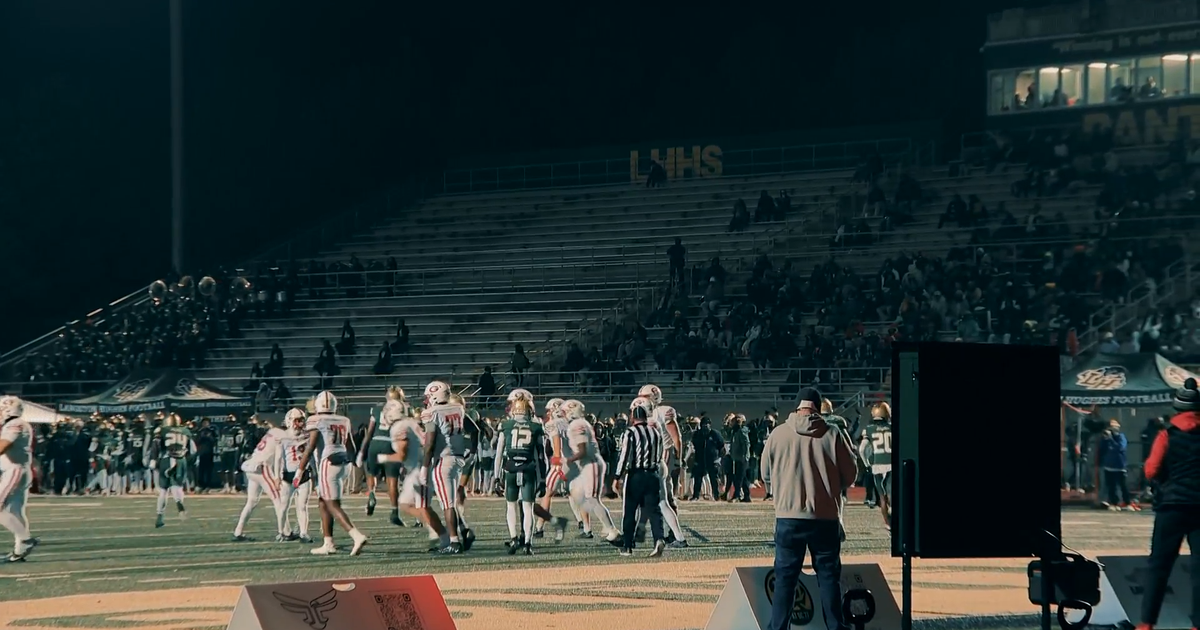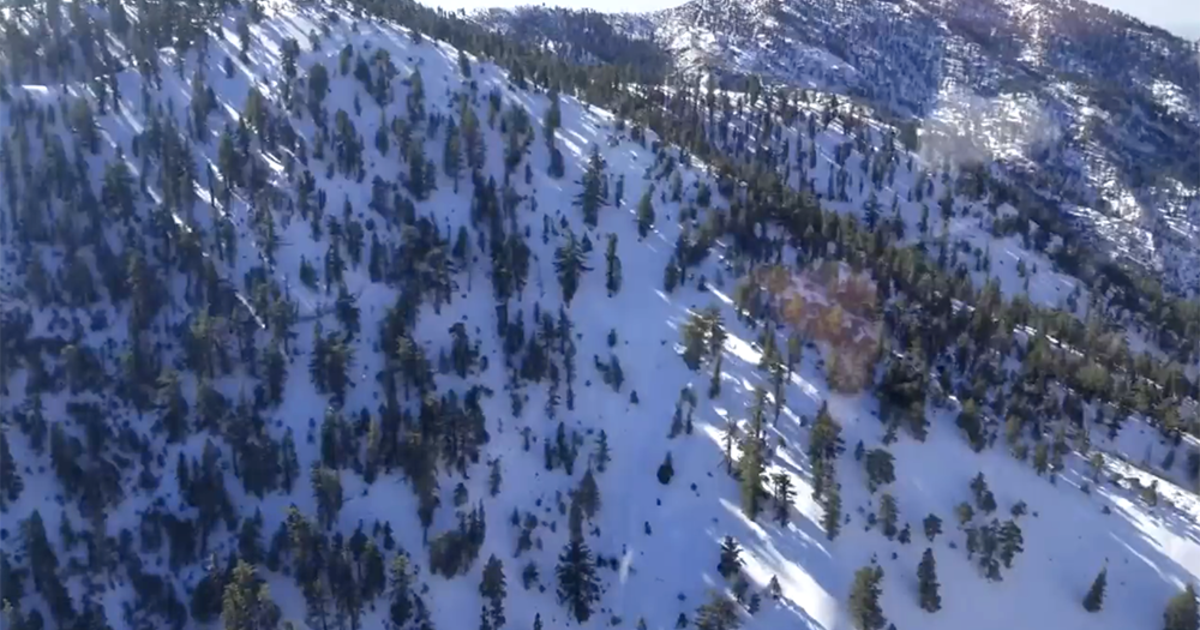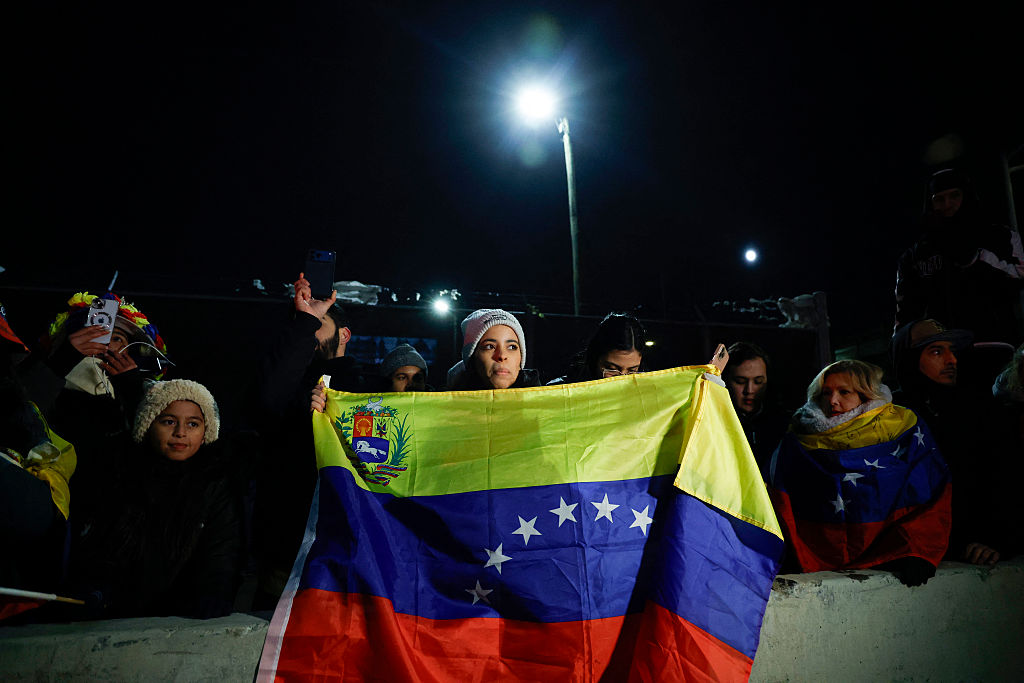Avalanche survivor on rescue effort: "It was a miracle"
The following script is from “Avalanche,” which aired on Jan. 29, 2017. Steve Kroft is the correspondent. Michael Karzis, Sabina Castelfranco and Vanessa Fica, producers.
America’s focus on Washington and our new president has overshadowed a tragic story in Italy, which otherwise would have been a more prominent story here. On January the 18th, a series of earthquakes in central Italy triggered an avalanche. It demolished the Hotel Rigopiano, then buried the ruins under 120,000 tons of snow, rocks and mountainside. It took 10 hours for rescue crews to arrive at the remote and snowed-in resort. And no one expected survivors. Twenty-nine people died. But miraculously, 11 survived, including four children who spent days buried alive. Steve Kroft has been in Italy this week learning what happened and listening to the survivors’ harrowing stories.
It took place on the Gran Sasso, a magnificent mountain range with excellent skiing, just a 90-minute drive from Rome, a perfect getaway for those seeking tranquility at out of the way places like the Rigopiano hotel, a small four-star resort, that has played host to dignitaries and movie stars. But on the evening of January 18, it was anything but tranquil. Forty guests and staff were gathered downstairs, trapped by the worst snow storm in decades and spooked by a series of earthquakes that had rattled the hotel.
Giampiero Parete: Everybody wanted to leave.
Among the snowed-in guests were Giampiero Parete, a chef from a nearby town who was there with wife Adriana and their two young children. Sometime after five o’clock, he went out to the parking lot to get medicine for his son.
Steve Kroft: You went out to your car?
Giampiero Parete: Yes, I went outside to the car, opened the car door, and then behind me I heard this noise of branches breaking, and then a big cascade and I started running away, and I saw a tree, and I just stood near that tree.
Steve Kroft: Did the snow hit you at all? I mean, did it bury you?
Giampiero Parete: Yes, the snow buried me a bit then I got up and when I turned around I saw all the cars piled on top of each other, and there was three, four meters of snow on top. All the trees were broken and everything.
Steve Kroft: And the hotel?
Giampiero Parete: And then I saw that the hotel was gone. And my world fell apart at that moment. And I said a prayer, before making any calls.
Both witness and messenger, Parete called emergency numbers but the cell phone signal was so weak, he wasn’t sure they understood him. He would eventually run across another survivor, the hotel handyman. And he finally managed to get through to his boss.
Giampiero Parete: I said to him, “Listen, call everybody because my phone isn’t working. Call somebody to help us, because the hotel’s gone.”
Steve Kroft: What’s going through your mind?
Giampiero Parete: My family, my things, everything that mattered was gone. But I didn’t want to lose hope. Maybe I could still do something.
Steve Kroft: You made the phone call and nothing happened for hours and hours. Did you hear anything? Did you hear anything at all up there?
Giampiero Parete: No, we didn’t hear anything. We screamed. We cried out. You couldn’t hear anything. There was total silence. Nothing. Nothing.
The first sign of help came between 3 and 4 a.m., when an Alpine Emergency Team of 14 men bearing shovels and rescue equipment arrived on skis and snow shoes, after a perilous trek through a blinding snowstorm. Paolo Di Quinzio led the patrol.
Steve Kroft: How long did it take you to get there?
Paolo Di Quinzio: It took us nearly four hours in the snowstorm.
Steve Kroft: Dangerous?
Paolo Di Quinzio: Very dangerous pieces of snow kept falling from the side the mountain. It was pitch black.
Di Quinzio and his men knew the area well and the hotel, but the four-story structure had all but disappeared. They had trouble finding it even with GPS.
Paolo Di Quinzio: Once we got there, we saw the lights of the two survivors in the car. So we knew there were people there. When we started to move around we saw these bits of material sticking out of the snow. So we knew we were in the right place and that’s where the hotel was.
Steve Kroft: How were you physically and mentally at that point?
Giampiero Parete: Destroyed. Physically-- my feet were practically frozen and so were my hands. And emotionally, knowing that as they were taking me away with the sled, I was leaving my family there. I was in tremendous pain.
Parete would be airlifted to a hospital in Pescara, suffering from hypothermia, as daybreak unveiled the extent of the tragedy. By 7 a.m., helicopters were shuttling more rescue crews to the site where they delicately began digging with hands and shovels looking for other survivors.
With the mountain cut off from the rest of the countryside and concerns about more avalanches or earthquakes, the government set up a makeshift command center here 17 miles away from the disaster site. It mobilized an emergency force of more than 1,000 hardened professionals and highly skilled volunteers.
They were rushed here from all over Italy, mostly organized in well-trained 34-man teams, that would work around the clock, alternating eight-hour shifts off and on the mountain. At first they didn’t know where to dig, the force of 120,000 tons of snow and debris slamming into the hotel at 50 miles an hour had crushed the structure and swiveled it off its foundation. They had dogs to smell, and all sorts of fancy equipment to listen, tunnelers to dig holes and snakers to go down in them. Forty-one hours went by with no signs of life, the rescuers had no way of knowing it, but there were nine survivors down there on the other side of the snow.
Among them Giorgia Galassi and Vincenzo Forti who were sipping tea when the avalanche exploded through the hotel.
Steve Kroft: What did it sound like?
Giorgia Galassi: Like a bomb.
Vincenzo Forti: Yes, it was a roar and then everything fell.
Giorgia Galassi: I felt like a wave pushed over me. That’s what I felt.
Steve Kroft: And three seconds later you were in a hole.
Giorgia Galassi: Yes.
A very dark, tiny hole… their cell phone flashlight revealed they were trapped in a very small air pocket, encased in snow, ice, broken timbers and tree limbs.
Giorgia Galassi: We immediately screamed to see if there was anybody else. And we heard that there were other voices and other people. And we communicated with them to know how they were.
Steve Kroft: How many people did you make contact with? Or could you hear?
Giorgia Galassi: The two were close to each other and there was another girl. We-- but we couldn’t see the other girl. And then a guy-- I think he was behind us who we couldn’t see but we could hear, and then a mother with a child we could hear.
Steve Kroft: You were there almost 60 hours, 50 some hours. How did you spend the time?
Giorgia Galassi: We slept. We spoke among each other. We did nothing.
Steve Kroft: Just waited.
Giorgia Galassi: Si.
Steve Kroft: Did you ever lose hope when you were down there? What-- what’s going through your mind when you were-- when you were down there in the dark?
Vincenzo Forti: No, you are not thinking. We never lost hope that someone would come for us.
On January 20th, after two nights of being entombed, they finally heard the voices of rescuers above them. It would take 10 more hours to get them out.
Steve Kroft: That’s a long time.
Giorgia Galassi: Yes, but it didn’t weigh on us because we were so happy they had arrived. And they always spoke to us and they made us calm. They always kept us in contact with them. They never gave up on us not even for a moment, not one second in all those hours.
“The true miracle was done by the rescuers...If you can’t call them angels, I don’t know who the angels are at this point.”
Vincenzo Forti: It was a miracle.
Giorgia Galassi: The true miracle was done by the rescuers.
Steve Kroft: I heard somewhere that you said-- you called them angels. Is that tr… Did that happen?
Giorgia Galassi: They take you out from underground so it is fair to say they gave you life for a second time. If you can’t call them angels, I don’t know who the angels are at this point. My life-- my second life, I owe it to them.
Giampiero Parete: You do it because of what’s in your heart.
Steve Kroft: A calling.
Giampiero Parete: Yes, it’s a mission.
Giampiero Parete, the witness and messenger, was still in the hospital when he learned that his son Gianfilippo, his wife Adriana, and finally hours later his six-year-old daughter Ludovica had all been pulled safely from the rubble. The little girl was evacuated to the hospital along with two other children she had been alone with in an air pocket. They didn’t know it at the time, but both of the young boys had been orphaned. Their parents among the 29 dead.
“In our society we’re always running around and we never sit still. Maybe we have to be reminded about what really matters.”
Giampiero Parete: I’m happy for myself, for my family. But I hold the people I met there that day in my heart. We’d become almost like friends, because it was a small hotel. I’m very sad for them. I’m not celebrating. I feel I have a duty to respect their pain even though I’m happy for my family.
Steve Kroft: What should people take away from this-- this story, this tale?
Giampiero Parete: I think this story nurtures a sense of family because once you go through this you can’t help but see that one second you’re here and the next you’re gone. Unfortunately, it could have happened to me on the mountain. It could happen to you in the street. And I think it’s reawakened a desire for family, for prayer, for the important things in life. In our society we’re always running around and we never sit still. Maybe we have to be reminded about what really matters.
